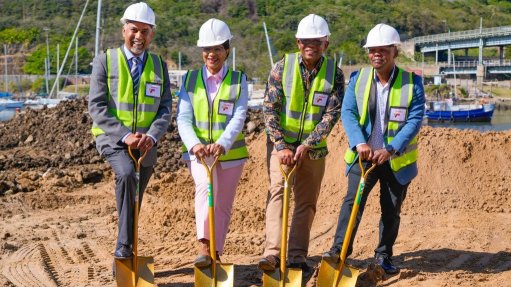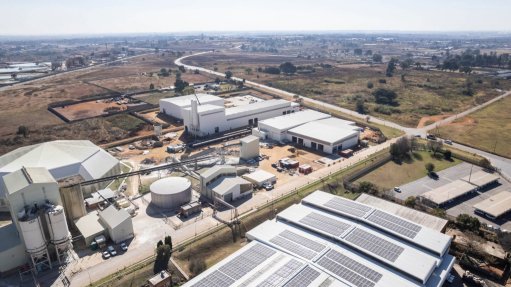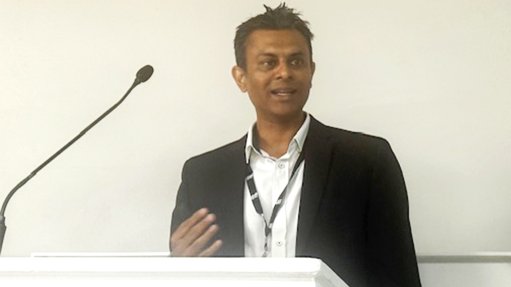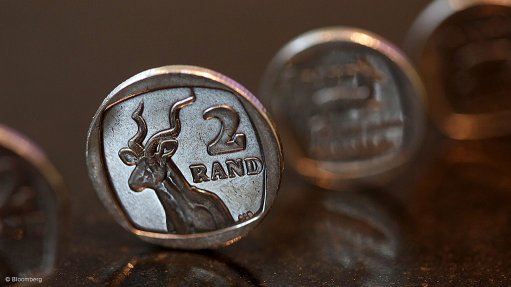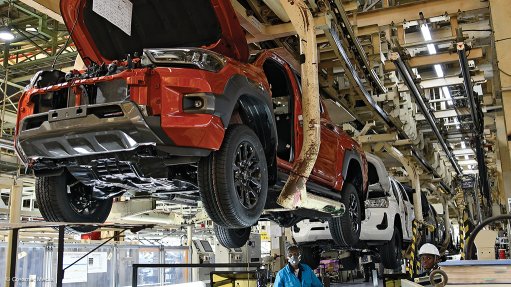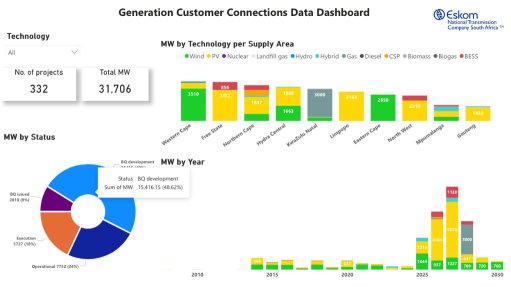The great energy transition debate in 2025 and beyond
This article has been supplied.
By Professor Sampson Mamphweli - Head of the Department of Science, Technology and Innovation’s Energy Secretariat at the South African National Energy Development Institute
At some point, we thought that Personal Computers were outdated and replaced by laptops and tablets. Then, boom, young people started using them for gaming and they are flying off the shelves like hot cakes. We also thought that e-hailing will replace minibus taxis, even taxi drivers fought e-hailing. But no, e-hailing is complimentary to mini-bus taxis because it addresses a different market. Some developments simply shift the way society lives and create new opportunities.
I always tell people that a revolution in the energy space may be good for the world. The move towards cleaner sources of energy may results in the repurposing and cleaning of fossil-based fuels. While the shift may results in some job losses and negatively affecting some economic activities in particular localities, it may also create bigger opportunities elsewhere and general economic growth. If we are to use the concept of natural selection, a process in which populations of living organisms adapt and change, we will learn that in that process there is natural resilience built into it. Those that adapt in one way or another become resilient and survive, those that fail to adapt may disappear or change their habitats. This applies generally in human life, we can try to stop it but we will never succeed, it will simply happen on its own.
Back to the energy transition debate, many people and businesses that can afford alternative and clearner energy sources are moving into rooftop and ground mounted solar energy systems either as small-scale embedded generation or off-grid systems or what we call behind the meter installations. Others, mainly big businesses, are opting to purchase power from independent power producers who are producing using solar and wind energy systems, doing so while wheeling through the Eskom power lines.
The latter is similar to adaptation in the natural selection example. So these businesses and households are adapting and they will survive through the resilience that they would have built and adapt to the changing world. With the introduction of the carbon border adjustment mechanisms in Europe, where goods produced using fossil-based energy will be charged a carbon tax when they reach EU borders, the adaptation that I described above becomes very important for the survival of those businesses that export their goods to European countries.
The real question then is: how will fossil-based energy adapt and build resilience going forward?
We have the emergence of clean-coal technologies that capture flue gases from coal boilers and convert them into useful products that could be commercially viable with time. We have carbon capture and storage technologies that convert flue gases into hard products underground, we still have the internal combustion engines dominating the mobility market using fossil-based energy sources. However, we also have the competing new energy vehicles (Electric vehicles and Hydrogen vehicles) coming into the picture with projections that the latter may be dominant by 2050 around the world. Many may still rely on the grid to power these vehicles but those who want to be 100% ‘green’ will power them through renewable energy systems such as solar and wind energy.
As South Africa we have great plans in the energy space. We have our blueprint long-term energy plan called the Integrated Resource Plan that informs the decarbonisation of the electricity sector. We have the Just Energy Transition Investment Plan that talks about the investment requirements for South Africa to transition from a high-carbon economy to a low-carbon economy. We have the Green Transport Strategy that guides us on the mobility side of things when it comes to powering that sector. We have the Hydrogen Society Roadmap and the Green Hydrogen Commercialisation Strategy – these two documents guide us when it comes to our involvement in the hydrogen economy both for internal consumption and the export market. We have the Gas Masterplan that guides us on how to exploit our gas resources and our role in the global gas market. We also have the South African Renewable Energy Masterplan that guides us when it comes to the industrialisation of renewable energy inputs.
All these plans don’t explicitly support the continued role of fossil-based fuels, they have a general shift towards new energy sources. So the resilience and adaptation by fossil fuels will have to come from within the fossil fuels-based economy through innovation and cleaning up the fuels for re-entry into the new energy market, just like the personal computers coming back through the gaming door.
Article Enquiry
Email Article
Save Article
Feedback
To advertise email advertising@creamermedia.co.za or click here
Comments
Press Office
Announcements
What's On
Subscribe to improve your user experience...
Option 1 (equivalent of R125 a month):
Receive a weekly copy of Creamer Media's Engineering News & Mining Weekly magazine
(print copy for those in South Africa and e-magazine for those outside of South Africa)
Receive daily email newsletters
Access to full search results
Access archive of magazine back copies
Access to Projects in Progress
Access to ONE Research Report of your choice in PDF format
Option 2 (equivalent of R375 a month):
All benefits from Option 1
PLUS
Access to Creamer Media's Research Channel Africa for ALL Research Reports, in PDF format, on various industrial and mining sectors
including Electricity; Water; Energy Transition; Hydrogen; Roads, Rail and Ports; Coal; Gold; Platinum; Battery Metals; etc.
Already a subscriber?
Forgotten your password?
Receive weekly copy of Creamer Media's Engineering News & Mining Weekly magazine (print copy for those in South Africa and e-magazine for those outside of South Africa)
➕
Recieve daily email newsletters
➕
Access to full search results
➕
Access archive of magazine back copies
➕
Access to Projects in Progress
➕
Access to ONE Research Report of your choice in PDF format
RESEARCH CHANNEL AFRICA
R4500 (equivalent of R375 a month)
SUBSCRIBEAll benefits from Option 1
➕
Access to Creamer Media's Research Channel Africa for ALL Research Reports on various industrial and mining sectors, in PDF format, including on:
Electricity
➕
Water
➕
Energy Transition
➕
Hydrogen
➕
Roads, Rail and Ports
➕
Coal
➕
Gold
➕
Platinum
➕
Battery Metals
➕
etc.
Receive all benefits from Option 1 or Option 2 delivered to numerous people at your company
➕
Multiple User names and Passwords for simultaneous log-ins
➕
Intranet integration access to all in your organisation









